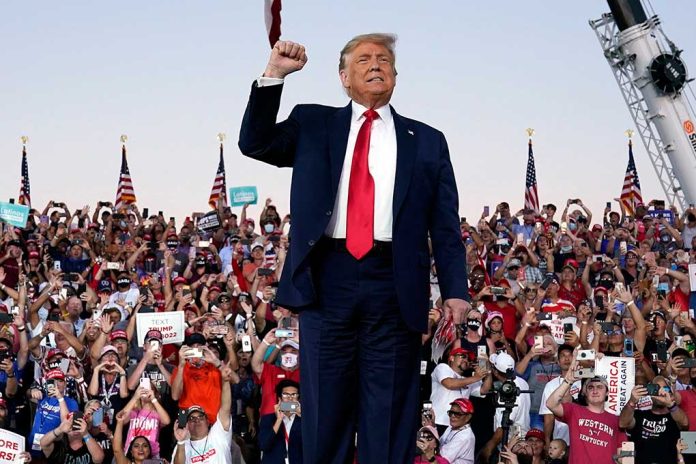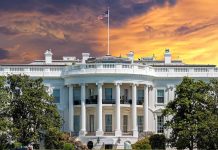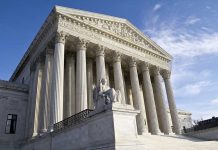
Donald Trump’s return to the White House brings his legal challenges to a halt, raising questions about presidential immunity and the future of ongoing prosecutions.
At a Glance
- Trump’s re-election pauses federal cases due to presidential immunity
- State-level prosecutions may face dismissal or significant delays
- Civil cases on appeal could see reversals or postponements
- Trump’s presidency significantly impacts economic outlook and Federal Reserve decisions
- Legal experts debate the extent of Trump’s protection from prosecution while in office
Trump’s Legal Landscape Shifts with Presidential Victory
In a stunning turn of events, Donald Trump has secured a second term as President of the United States, despite his recent conviction by a Manhattan jury. This electoral victory, backed by nearly 72 million American voters, has dramatically altered the trajectory of his numerous legal challenges. As Trump prepares to re-enter the White House, the intersection of his legal troubles and presidential duties has become a focal point of national discussion.
With Trump’s presidency secured, federal cases against him are expected to be dropped, adhering to Department of Justice policy against prosecuting a sitting president. Special counsel Jack Smith’s aggressive pursuit of cases against Trump is likely to come to an abrupt end following the inauguration. This development underscores the significant protection from federal prosecution that the office of the presidency provides.
State Cases Face Uncertain Future
While federal cases may be halted, the fate of state-level prosecutions remains less clear. Legal experts suggest that many of these cases could be paused or dismissed due to Trump’s presidential status. The Supreme Court has previously ruled that state legal proceedings cannot continue against a sitting president, effectively putting such cases on hold.
One high-profile case that may be affected is that of Fulton County District Attorney Fani Willis, which is now expected to face significant challenges. Judge Juan Merchan, overseeing the Manhattan case, is unlikely to sentence Trump to incarceration, citing logistical impossibilities and the doctrine of presidential immunity.
Civil Cases and Appeals
Trump’s legal battles extend beyond criminal proceedings. His civil fraud case and civil sexual misconduct case are currently on appeal. With his re-election, these cases could potentially see reversals or significant delays. The presidential office provides a unique shield, complicating the progression of these civil matters.
Economic Implications of Trump’s Presidency
Beyond the legal realm, Trump’s return to the White House is expected to have far-reaching economic consequences. His victory raises uncertainties for the Federal Reserve, potentially influencing its policy decisions. Trump has promised aggressive tariffs against U.S. trading partners, extensive deportation of undocumented immigrants, and an extension of the 2017 tax cuts.
These policies could lead to increased prices, wages, and federal deficit, presenting new challenges for economic management. The Federal Reserve may find itself navigating a complex landscape, balancing economic growth with inflationary pressures under a second Trump administration.
Looking Ahead
While Trump’s re-election provides significant protection from prosecution, legal experts argue that he is not entirely free from legal challenges. The pause on current proceedings does not equate to permanent dismissal, and some cases may resurface after his term ends. The coming years will likely see ongoing debates about the extent of presidential immunity and its impact on both federal and state-level legal actions.
As the nation grapples with these unprecedented circumstances, the balance between presidential duties and legal accountability remains a central issue. Trump’s second term promises to be a period of intense scrutiny, both in terms of his governance and the evolving legal landscape surrounding his presidency.






















